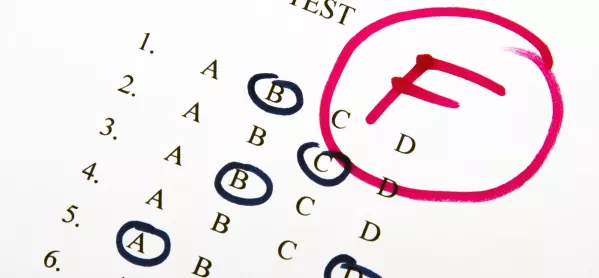The government’s handling of this year’s A-level results has been a “clear fail”, according to a respected think tank.
The Institute for Fiscal Studies has said that the problems surrounding exam grades this year were entirely avoidable and that the government should not have had to rely on “shocked 18-year-olds on results day” to realise there was a problem.
Today, it has published analysis into the events of the past week, which resulted in major outrage over this year’s A-level results and a U-turn in the grades that are now being awarded.
DfE: Department gives Ofqual its full backing
Exams: Union warns urgent plans needed to avoid a repeat of 2020 exams fiasco
Exam boards: GCSEs will be on time
The IFS concludes that A-level results last week should not have been published until they were exposed to scrutiny from outside of Ofqual.
Following the cancellation of this year’s exams, A-level grades were given to students through a moderation process in which Ofqual and exam boards looked at centre-assessed grades produced by schools and colleges, a ranking of pupils in each subject at their school and the past performance of the school.
However, this process resulted in major controversy after it was revealed that it had appeared to favour independent schools with smaller cohorts over larger state schools.
It also resulted in almost 40 per cent of the centre-assessed grades that were submitted by schools and colleges being downgraded.
Two days ago, Ofqual announced a U-turn and said that A levels and this week’s GCSEs would now be based on the centre- assessed grades unless the moderated grade was higher.
This change has been welcomed by school leaders but prompted warnings that it is now causing major problems for university admissions.
A new blog from the Institute for Fiscal Studies by Jack Britton and Ben Waltmann says: “These problems were entirely avoidable. A-level results should never have been released before being subject to scrutiny beyond Ofqual.
“The government should not have had to rely on shocked 18-year-olds on results day to realise there was a problem.
“And the allocation of places should not have happened immediately - the government should have released the results in advance and allowed an appeals process on grades before allowing universities to finalise places.
“Allocating A-level grades to students who did not sit exams was never going to be easy. But the government’s solution is a clear fail. This will have repercussions for universities and students, now and in the coming years.”





